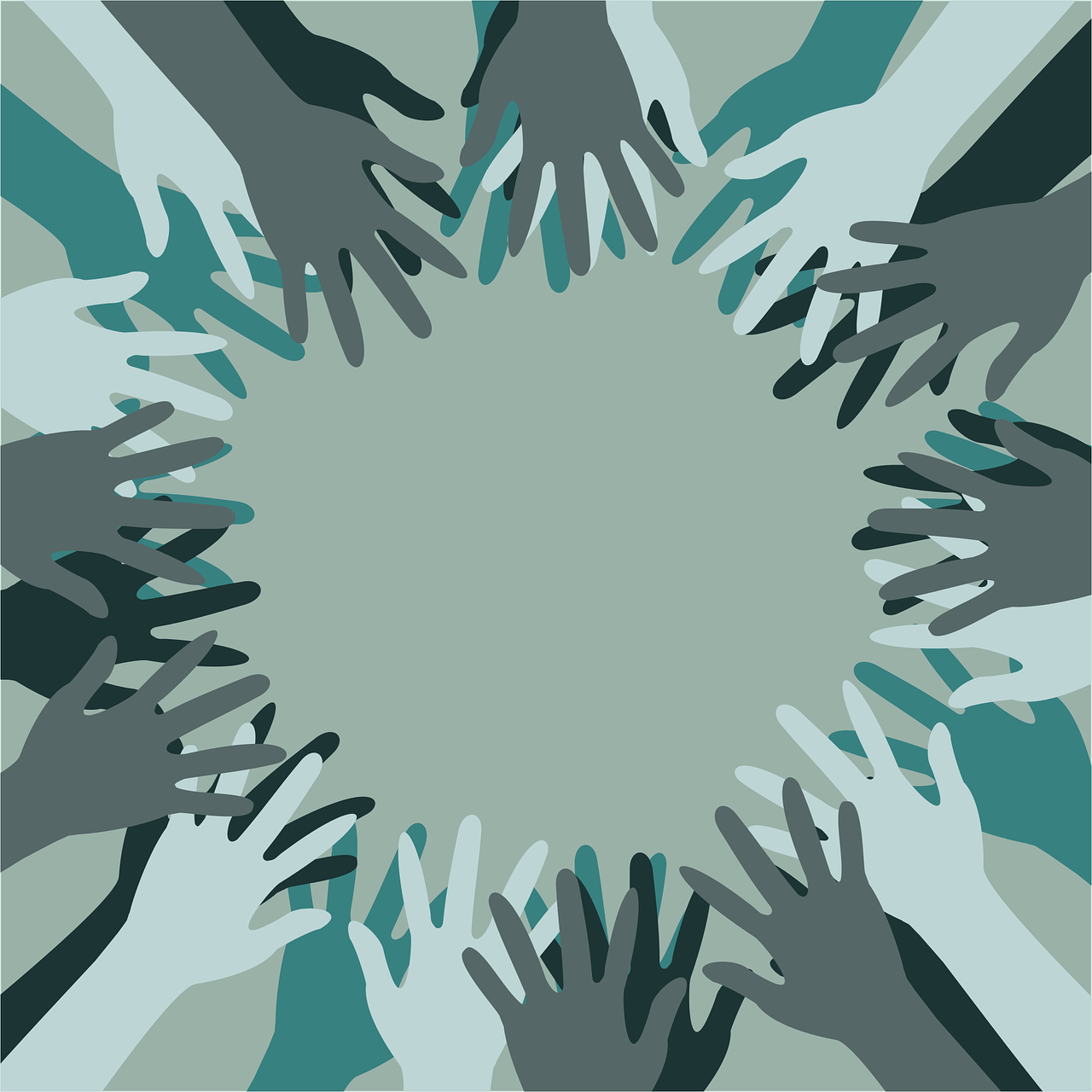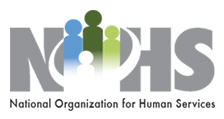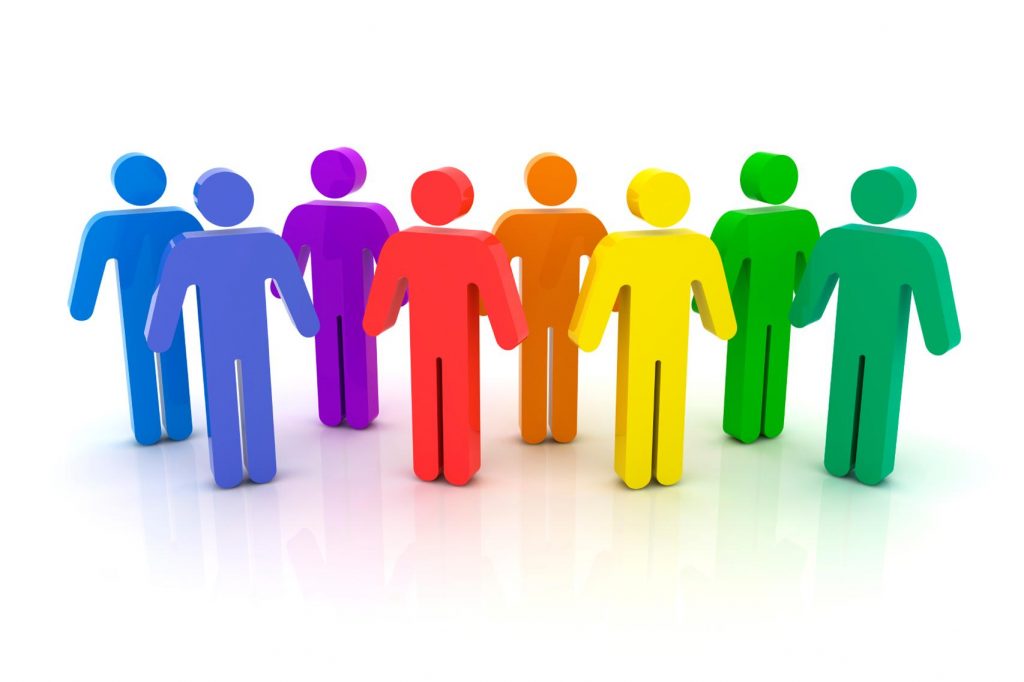1 Introduction to Human Services
Elizabeth B. Pearce
What is Human Services?
People often ask me, “What is human services?” My best answer is this one: The field of human services is broadly defined but has a unique approach to meeting human needs. It uses an interdisciplinary knowledge base and includes prevention, intervention and remediation approaches. The human services field is committed to improving the overall quality of life of service populations, service delivery and collaboration of agencies. It seeks to optimize the potential of individuals and groups with a focus on equity and social justice.

Let’s break that down.
Broadly Defined
The broad definition means that there are many jobs and careers that fit under the umbrella of human services. People who are motivated to help others find themselves together in this field even though they work in a wide range of settings including schools, medical offices and hospitals, private non-profit agencies, and governmental services. They perform functions that help people resolve life’s problems such as housing insecurity and homelessness, unemployment, food insecurity, addictions, custody, or the social and emotional sides of loss, tragedy and illness. They provide services helping people with adoptions, fostering children, parenting, mental health challenges, dealing with grief and loss, and other life transitions.
Unique Interdisciplinary Approach
Human services is grounded in the context of human development and human organizational behavior. This broad understanding comes from multiple fields: human development and family sciences; psychology; sociology; public health; nutrition; communications and others. While the professional in human services will have a specialized focus in one of these areas, they will also have enough broad-based knowledge and experience that they can draw on when needed.
Prevention, Intervention, and Remediation
Preventing problems, intervening in problems and remediating problems are differing ways to act and respond. This field involves professionals who specialize in each of these approaches. Other professionals utilize knowledge of all three in order to engage in problem-solving that leads to the best approach with any given individual or group. There will be examples of each of these approaches later in this text.
Collaboration, Service Delivery, and Quality of Life
Working in this field means that many agencies and services collaborate with each other in order to serve individuals, families, and groups best. Professionals work to make delivery of services as smooth and complete as possible. Planning and communication are important to delivering human services. Helping people have the best quality of life possible, even when it means stepping beyond the specific service or job that one holds to reach out to other services is important in order to serve effectively.
Equity and Social Justice
Human Service professionals recognize the differentiation between social problems and personal troubles. Many issues that individuals and groups face stem from social problems that need solutions that are systemic. Recognizing that individuals are facing problems that are societal in nature and being tuned into the ways that equity can contribute to solutions is a pillar of the profession. Social problems, personal troubles, equity, and social justice will all be discussed more deeply later in this text.
How does Human Services relate to other Fields?
Human services is a relatively new profession, having emerged from social welfare work in the 1950’s and 1960’s. social work became a more prominent field in the same era and these two fields are intertwined. Both careers are focused on helping people both individually and in groups and share a focus on social justice. One key distinction between these two fields is that social work has a specific licensing and credentialing system and human services does not. psychology, public health, education, and sociology are other related fields to human services. Students who are considering human services as a career are often considering these other fields as well.
Social Work
While there are many jobs and careers that are open to professionals in both fields, there are certain jobs that can only be held by a licensed social worker, usually signified by “LSW”. Professionals from both fields may work side by side in settings such as addiction treatment centers, incarceration programs, government agencies and nonprofit agencies. Both professions offer degrees at multiple levels: Associate, Bachelor, Master, and Doctoral degrees. social work, however, has an additional credentialing system. States and other jurisdictions license social workers in varying but similar ways; most require completion of an accredited social work program at the bachelor degree level, “BSW” and the master’s degree level, “MSW”. Students who are interested in pursuing upper degrees in social work often major in human services or sociology in their early college years.
Psychology and Sociology
Where human services and social work are both applied fields with a focus on working with people, psychology and sociology are both more focused on theoretical understandings. Both are important foundations for the applied fields, but both dive more deeply into science, research, and theory than does human services. Psychology is focused on the study of the individual human mind and the way it functions and how it affects behavior. Sociology is focused more on the study of society’s structure, development and functioning.
The study of social problems, which is fundamental to human services, comes from the field of sociology. Sociologists research, teach, study and analyze organizational and societal behavior including social problems and how they affect people and society. To learn more about what sociologists do, watch several of these one minute interviews from the #lovesociology series.
Psychology is another field that has specific credentialing associated with higher level degrees. Students who wish to become a psychologist are typically thinking about earning a doctoral degree in which they might treat patients in a clinical setting. Others will earn a doctorate so that they can perform scientific research related to the brain and behavior. The verywellmind website provides a list of twenty different kinds of research and applied positions for psychologists here.
Counselors and Therapists
Students sometimes ask about becoming a counselor or a mental-health therapist. These are also roles that are certified and licensed by states and other jurisdictions. It is important to look at the certification requirements in the state in which you reside or plan to reside. Almost always these roles require a master’s degree and sometimes a doctoral degree. An undergraduate degree in human services, psychology, social work or a related field prepares students for these advanced degrees.
Criminal Justice
Criminal justice is another broad field, which encompasses all aspects of the systems related to law enforcement. This includes social processes such as laws, policies, and the practices of the court systems. It includes jobs such as police, lawyers, parole and probation officers, and correctional officers. It also includes all kinds of helping professions that may be placed within the justice system such as social workers, counselors, behavioral aides, and addiction counselors. These helpers may be embedded within a jail or prison, but they also might specifically work with people who are in other parts of the justice system. People who are interested in the remediation aspect of criminal justice work are often inspired by the grounding principles of human services. Students of human services who have also studied criminal justice may head toward careers in parole, probation, or other helping roles within a correctional facility.
Public Health, Education, and Early Childhood Education
All of these fields are also considered “helping careers” and are application based, just like human services. Public health is a very broad career that may range from research, to administration, to education all focused on the health of individuals and groups. education (grades K-12) and early childhood education are teaching and administrative fields focused on the care and education of children from birth to age 18 years.
Public Health
People with human services and with public health degrees might end up working side by side with one another in organizations that are focused on the health of people, but there will likely be more specialized jobs in that same organization that require a public health degree. There has been a great deal of focus on public health issues during the COVID-19 pandemic. If the field of public health is one you are considering, you can watch the Center for Disease Control’s (CDC) webinar, Introduction to public health.
Education and Early Childhood Education
Students who want to work with children of varying ages may be interested in the education or early childhood education fields. There is certainly an overlap with the human services field because there are many families with children who seek help from human services professionals. A primary difference between teaching children and serving families with children s that a teacher is responsible for designing and implementing curriculum for a group of children, and typically spends eight hours per day with those students. The human services professional is more likely to work with children with their parents present and for shorter periods of time. For example, someone with a human services degree might be a Family Support Specialist for Head Start or other early childhood education program. Teachers in public schools must be certified by the states that they live in; states vary whether this is completed at the bachelor’s or the master’s degree level. This applies to K-12 teaching consistently and in some states to early childhood teaching.
Foundation for the Future

Human services, social work, psychology, sociology, public health, education, and early childhood education are all similar in that they are all fields that are involved with helping or studying individuals and society. In addition, they are all professions. Professional fields are defined by their need for long-term education and training. Some have licensure systems as well as requiring an undergraduate or graduate degree. In addition professions are distinguished by having a professional association and a code of ethics that members utilize in their work. The National Organization for Human Services holds professional development conferences, has publication resources, and a code of ethics.
An undergraduate degree helps prepare you for an advanced degree and your career. Sometimes the degree is the same as your ultimate profession, and other times it is a related field to the higher level degree that you will earn. An associate’s degree in Human Services can lead to bachelor’s, master’s and doctoral degrees in multiple fields including Human Services, Social Work, Counseling, Public Health, Psychology, or Sociology.

References
Kincaid, Susan O. (2009). Defining Human Services: A Discourse Analysis in Human Services Education: A Journal of the National Organization for Human Services. Retrieved from https://www.nationalhumanservices.org/assets/Journal/2009.pdf
National Organization for Human Services (n.d.) What is Human Services? Retrieved from https://www.nationalhumanservices.org/what-is-human-services
Licenses and Attributions
Open Content, Shared Previously
Figure one. “Human Resources”, from https://pixy.org/5745621/ is in the public domain
Figure three. “Human Resources Clip Art” from https://pixy.org/777072/ is in the public domain
All Rights Reserved
Figure two. “NOHS Logo” from https://www.nationalhumanservices.org/ used under fair use

